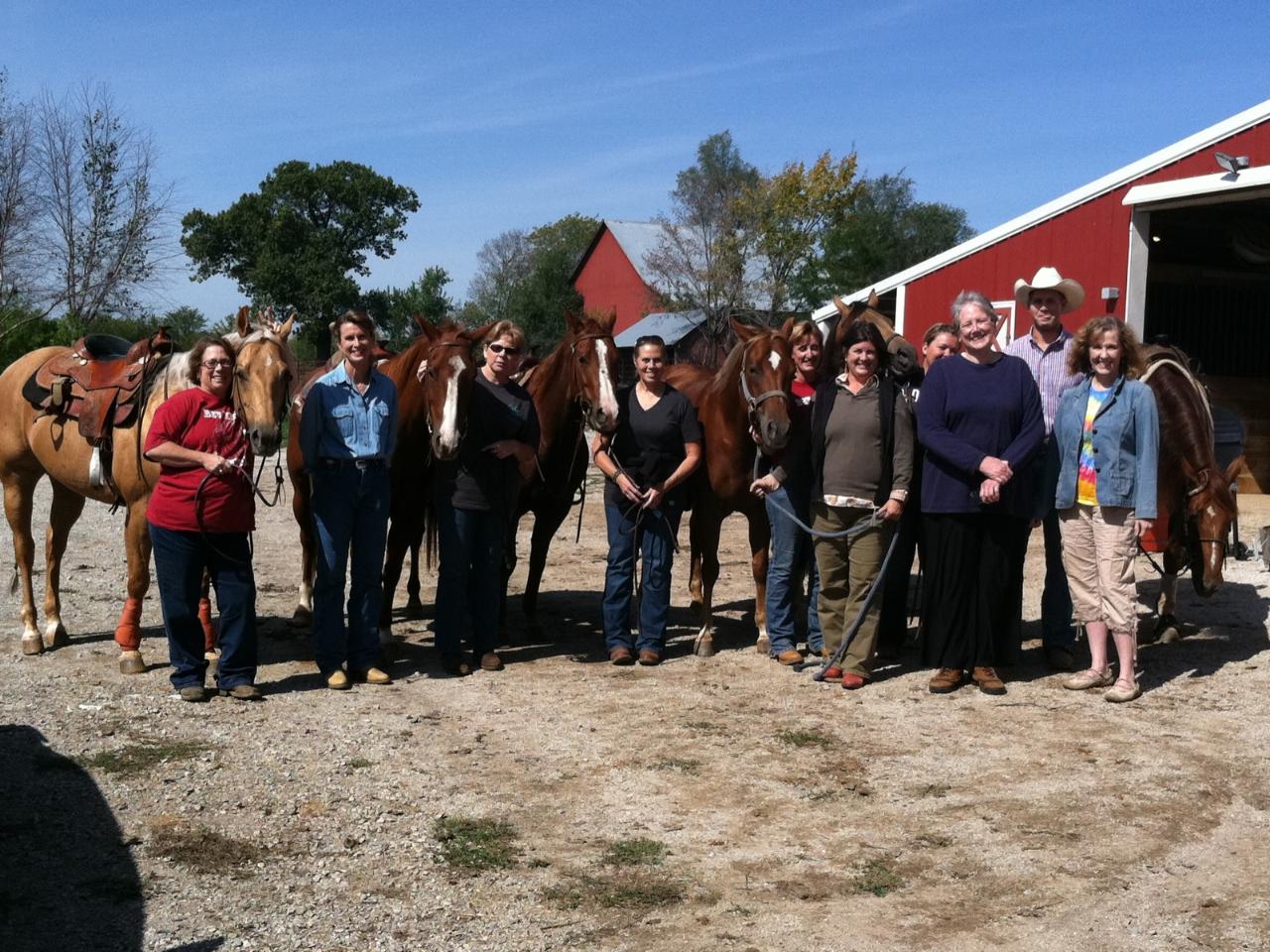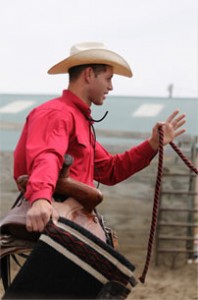
Thank you to those of you who attended the Bev King/Cal Middleton reining clinic yesterday (9/29). To those of you who could not make, hopefully you can attend one of our reining clinics in the future.
At the reining clinic Bev and Cal gave demonstrations of reining horses at different levels of training. They started out with a green two year old and showed people the ins and outs of starting a colt correctly. Remember to always consult a professional when it comes to starting a horse as mistakes are extremely hard to fix and dangerous. Here are some of the important points covered for the start of a two year old.
Mental Theory
- Always demand respect from your horse
- Keep your horses attention on you
- Keep your horse curious and happy
- Always demand respect from your horse
- Always allow your horse a rest as a reward when he accomplishes what you are asking
Physical Theory
- Teach your horse to follow his nose
- No unrequested motion to any direction
- Always pull slow and firm in order to make your horse soft
- Never jerk or bump a green horse at this stage
- Never release pressure until your horse gives to the pressure
- Free up the horses shoulders by teaching the horse his shoulders follow his nose which follows your hands
- Teach the horse to move away from your leg, sometimes simular to side passing or half passing
- Start teaching the horse how to maintain good frame, also known as collection and/or softness in your horse
- Leads ~ setting up your horse for a correct lead departure
- Basic body control of your horse
- Teaching your horse the elements of a sliding stop
- starting and stopping the spin
- run downs and sliding stops
- lead changes
- circles as well as fast to slow transitions
- total body control
- softness and collection in your horse
- Rollbacks
- Mental theory of schooling a horse and/or maintaining the horses positive attitude in the show pen
This was followed by a horse in the intermediate stage of training. At this stage we are starting to teach the horse the basics of the different maneuvers that make up the sport of reining, and also how these principles have a direct correlation to a trail riding horse and these principles can make any horse a better partner for their rider. Below is a list of some of the things we worked on in the intermediate stage of training.
Next Bev and Cal demonstrated different finished horses and talked about how to maintain a finished horse as well as how the principles learned at the beginning and intermediate stages make such an important difference in the finished product. Here are some of the things we worked on at this stage of training.
Aside from the very informational demonstrations Bev and Cal helped the riders with each of their issues and gave them tips to improve their horses. The riding spots were filled by some NRHA reining competitors as well as trail riders and beginning horseman/women who were just wanting to learn basic control and tips to improve their relationship with their horse.

